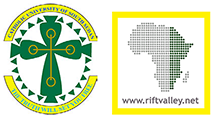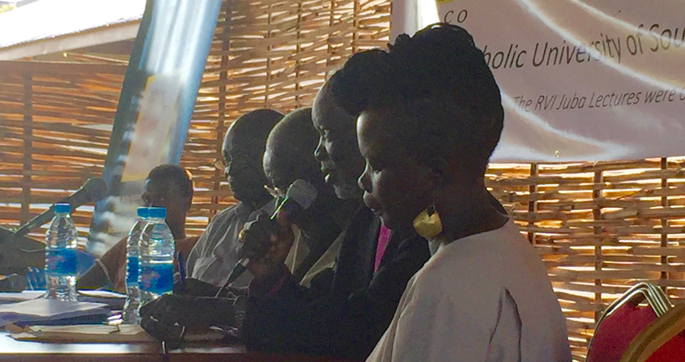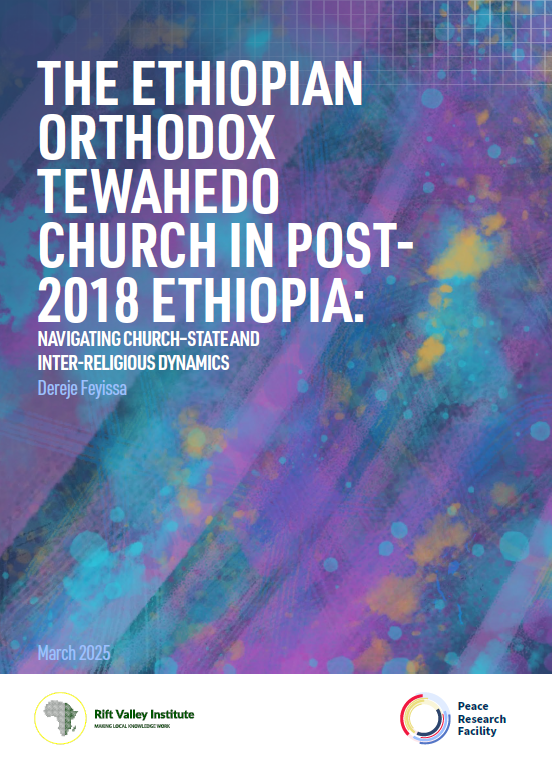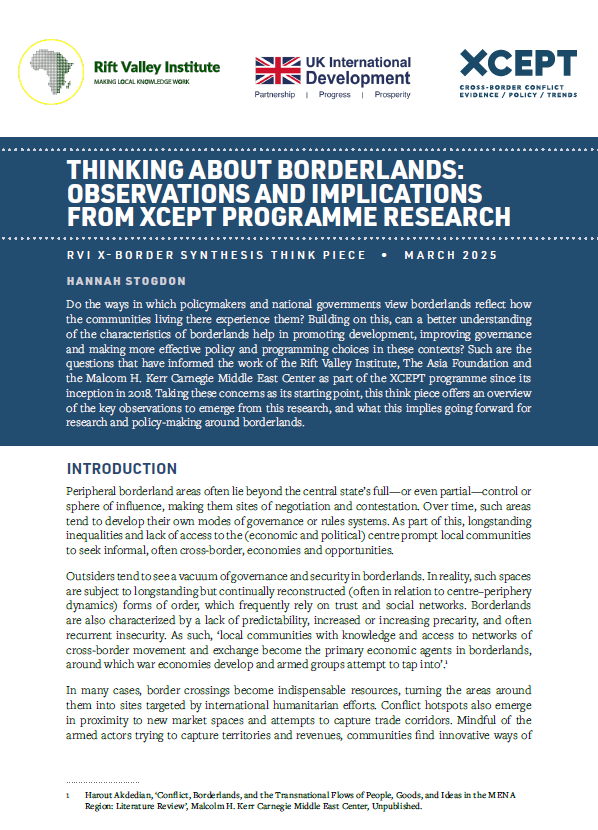
The fifth Rift Valley Institute Juba Lecture Series took place over the week of 20 June, under the title: What can civil society do? The role of civil society in the political transition.
Since 2010, the RVI has organised an annual series of public lectures in Juba. These lectures are designed to promote public discussion of emerging political and cultural issues in South Sudan. This year’s lectures were co-hosted by the Institute of Applied Research and Community Outreach at the Catholic University of South Sudan, Juba.
With the recent formation of a Transitional Government of National Unity, this year’s lectures come at a critical time. A civil society, confident and well resourced, can contribute much to political discourse and is better able to engage in nation building, hold public institutions to account and improve the transparency of public life. The 2016 lectures brought together academics, activists, the church, chiefs and press to discuss the nature of civil society in South Sudan and its past and future place in the public sphere. Over three evenings the programme focused on specific institutions, including NGOs, churches and customary authorities, with a concluding discussion that explored the relationship between them.
The panel discussions sought to answer questions concerning the role of civil society, including: What does the experience of working towards the peace agreement of August 2015, and the subsequent efforts to form the TGoNU, tell us about civil society in South Sudan? What can we learn from the historic engagement of civil society in peace building? How can the different civil society elements, NGOs, traditional authority leaders, and churches, work together?
The first day of the lectures brought chiefs and pastors together to discuss the relation between churches and traditional authorities. Speakers included Madame Modi Angelo, Chief Wilson Peni, Paramount Chief Jacob Madhel and Bishop Enock Tombe of the Anglican diocese of Rejaf. The discussion was moderated by John Ashworth. The second evening was a critical discussion of the role of non-governmental organisations in civil society. Speakers included Isaac Kenyi of the Justice and Peace Commission, Edmund Yakani, a prominent civil society activist and Director of CEPO (Community Empowerment for Progress) and Grant McDonald (Journalists for Human Rights). The evening’s discussions were chaired by Dr Bernard Suwa. The final evening brought together speakers from both nights—chiefs, church people, NGOs and CSOs—to confront the central question of this year’s series: How can civil society contribute to the political transition in South Sudan? The panel included Paramount Chief Jacob Madhel, educationalist Akuja de Garang, Bishop Enock Tombe, and Isaac Kenyi. The final evening was also chaired by Dr Bernard Suwa. The lectures’ audience included students and teachers from both Juba University and the Catholic University, representatives of the Government of South Sudan, diplomats and members of the general public.



